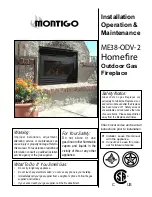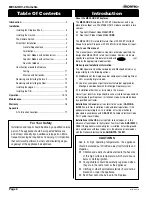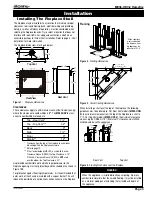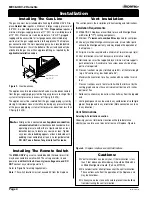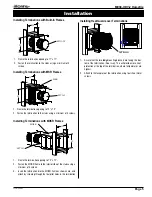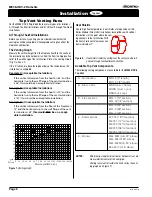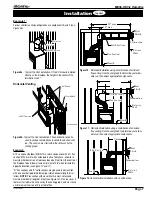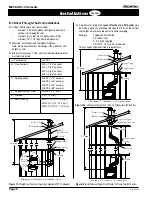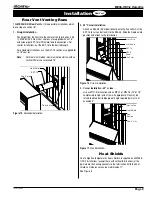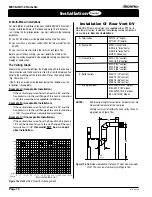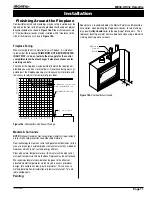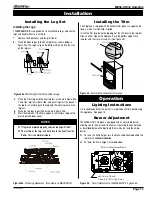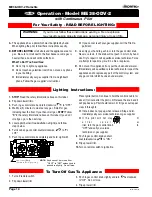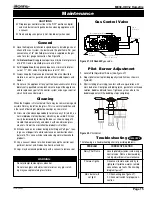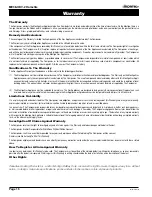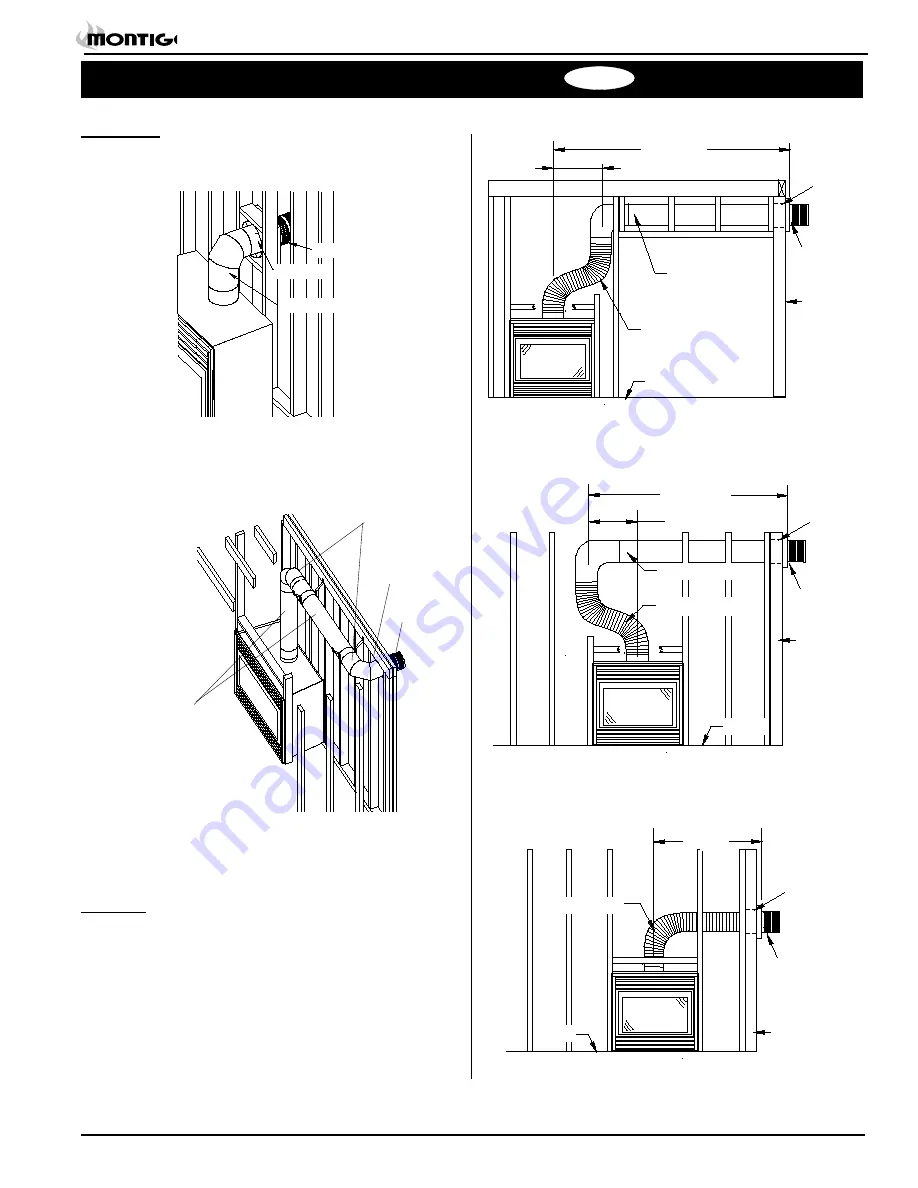
Page
ME38-ODV-2 Homefire
Part No. XG0123
Installation
Termination
Example 1:
For our shortest venting configuration use components A and F
(see
Figure 9a)
.
Figure 9a.
Typical Top Vent installation. If the 90° elbow is installed
directly on the fireplace, the height to the center of the
termination is 44".
Horizontal Venting
Figure 9b.
Typical Top Vent installation. The solid sections can be
used in various combinations to obtain the desired vent
run. The vent run
must
fall within the limits set by the
venting graph.
90° Elbow
MEXT Section
Heat Shield
Heat Shield
MEL-90F/F Elbow
Termination
Example 2:
A 10' section and elbow (MIHR-10) used in conjunction with 3 ft. flex
section (MFL-3) will, when extended in a five foot chase, allow for a
maximum horizontal run of twelve and one-half feet from the centre of
the fireplace to outside wall and a minimum of 7'6" when retracted in
opposite direction
(see Figure 10 and 11)
.
"D" flex sections and "E" solid sections may be used in conjunction
with one another to obtain different possible horizontal length instal-
lations.
NOTE:
Flex section with no vertical rise must not exceed
maximum horizontal length of 3 feet
(see Figure 12)
. Flex runs over 3
feet must fall within the limits set by the venting graph, and must have
a minimum vertical rise of 3" per foot of flex.
Top Vent
Figure 10.
Extended Installation using a combination of solid and
flex venting. Use the vent graph to determine your allow-
able run, then select appropriate components.
Figure 11.
Retracted Installation using a combination of solid and
flex venting. Use the vent graph to determine your allow-
able run, then select appropriate components.
Figure 12.
Horizontal flex installation with no vertical rise.
Hearth
Termination
Exterior
Wall
3' max.
Flex Section
Hearth
Flex Section
Termination
Exterior
Wall
Solid Sections
Heat
Shield
Heat
Shield
Hearth
Flex Section
Solid Sections
Termination
Exterior
Wall
Heat
Shield
150" max.
30" max.

